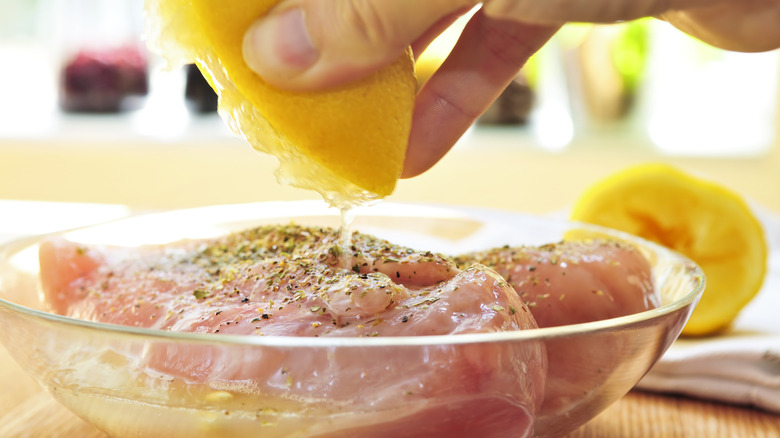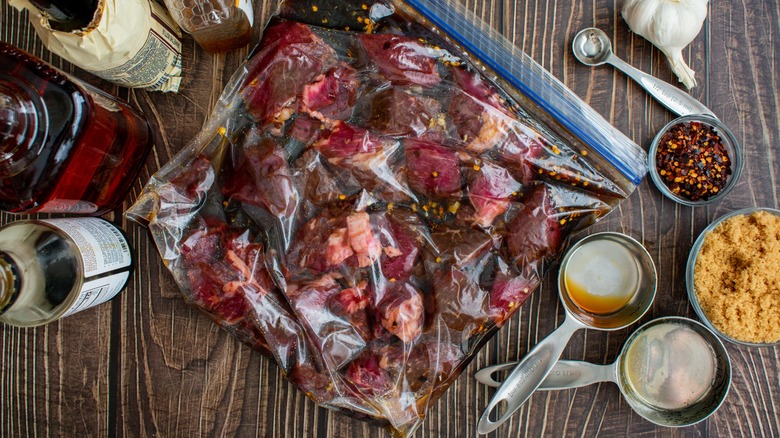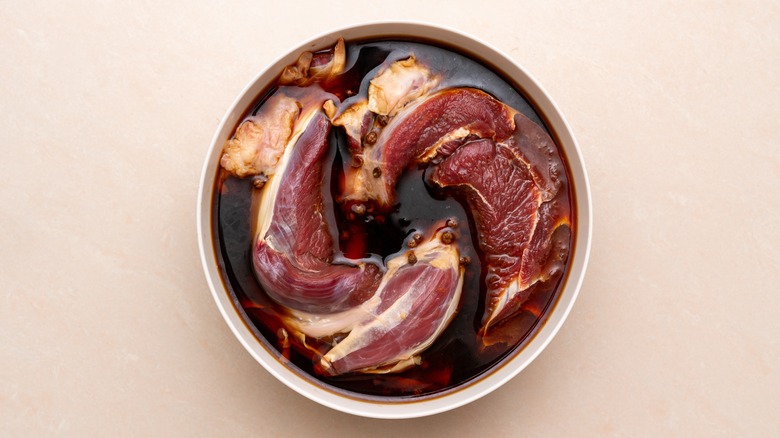How Too Much Acid Could Be Ruining Your Marinade
Marinating your meat before throwing it on the grill or stovetop opens the door to all kinds of flavor combinations that can easily upgrade your dinner. However, there's a science to crafting the perfect marinade, which usually contains oil, acid, sugar, salt, and spices. The acid is what you really want to pay attention to, whether you're looking for a basic marinade recipe for a perfectly grilled skirt steak or want to try out a yogurt marinade for extra juicy chicken.
"Acids, such as vinegar, citrus juice, tomato juice, Dijon mustard, yogurt, wine, or balsamic vinegar, can be used to tenderize tougher cuts of meat and enhance its flavor," K.C. Gulbro, owner of both FoxFire Restaurant and Copper Fox event venue — and the Chef Ambassador for Certified Angus Beef® — told Food Republic. "However, it's important to strike a balance between the acid, oil, and flavor because too much acid will make the meat bitter."
How acid affects texture in marinades
Acid helps break down the tough outer fibers of meats like beef chuck and flank steak by denaturing the proteins, which can be a great way to soften up cheaper and less tender cuts. But it can sometimes do its job a little too well.
"When preparing a steak marinade, it's important to consider the ingredients and their effects on the meat," K.C. Gulbro explains. "Ingredients high in salt or acid have a stronger impact the longer the meat is marinated. For example, citrus can make steak mushy if marinated for too long, while salt can make the meat drier or less tender." Gulbro recommends limiting acid-based marinades to two or three hours, "to prevent adverse texture changes in the meat."
Try sticking to a three-to-one ratio of oil to acid, and remember that stronger acids like lemon or lime juice or vinegar will work faster at tenderizing your meat. For milder marinades, consider additions like orange juice or yogurt, which have a lower pH, but still contribute that acidic component.
What acids to use in marinades
When considering which acids to use as a base for your next marinade, there is a much wider scope of options than you might realize. There are, of course, many types of vinegar: white wine vinegar and red wine vinegar, but also rice vinegar, apple cider vinegar, and black vinegar. Citrus juice from lemons, limes, oranges, grapefruits, or even tangerines would also be lovely. But you could also use various types of soda, which provide both sweetness and acid, as do beer or cider. Fish sauce and soy sauce are also great marinade bases, providing a layer of umami, though you may need to adjust your salt levels when using these.
Pineapple and kiwi, though somewhat acidic, are also commonly used in marinades, but use enzymes to break down meat. This is also how yogurt and buttermilk work, since the calcium in them also has enzymatic properties, but these are not to be confused with acid-based marinades.



